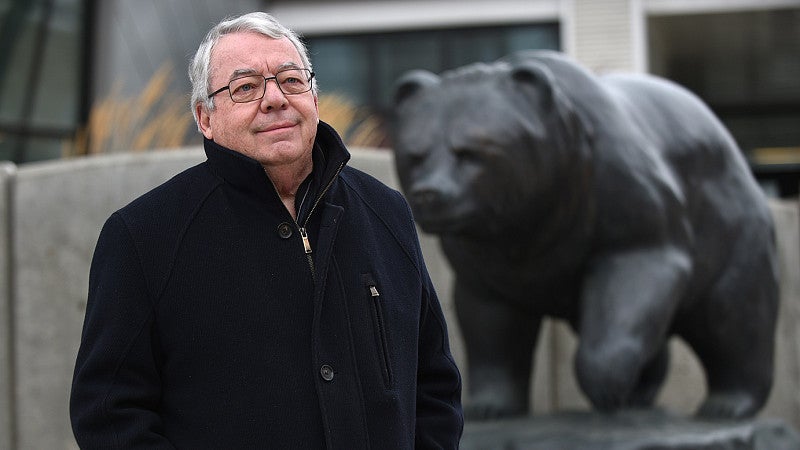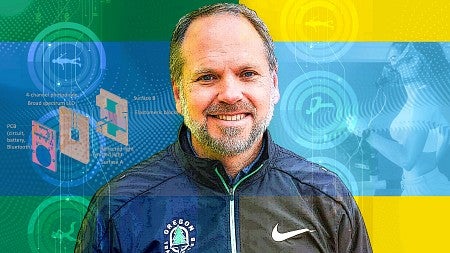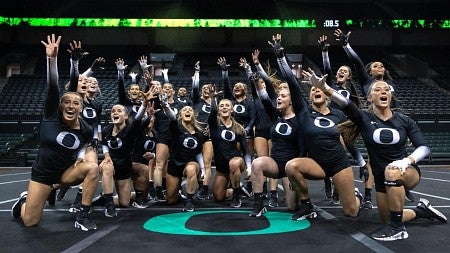
Game Changer Steadward Supports Paralympic Athletes
Robert Steadward has been honored for devotion to Paralympians and other athletes with disabilities
By Emily E. Smith • Photo courtesy Robert Steadward • October 6, 2021
3 min readOne day toward the end of 2020, Robert Steadward received a call from the office of Canada’s Governor General.
Governor General Julie Payette had named Steadward, a resident of Edmonton, Alberta, a Companion of the Order of Canada. The award for international service has been bestowed on singer Celine Dion, Nelson Mandela, prime ministers, and British royalty.
“I couldn’t believe it,” Steadward says. “I thought someone got the wrong phone number.”
But the call was no mistake. The honor was in recognition of his life’s work.
Steadward, PhD ’78 (physical education), has long been a key advocate of the disability sport movement. He helped found the International Paralympic Committee and served as its first president. In an agreement with the International Olympic Committee in 2000, he helped ensure the same city would host the Olympics and Paralympics moving forward.
While growing up, Steadward learned from his parents and grandparents the importance of helping others.
His advocacy for athletes with disabilities took root in the 1960s, while he competed in track and field for the University of Alberta. Steadward saw stark differences in the mediocre equipment and training available to disabled athletes and the lavish resources he enjoyed as a student-athlete.
“I felt that I just needed to reach out and help them,” Steadward says. “I thought I could make a difference.”
Steadward was named president of the Alberta Wheelchair Sports Association in 1971 and helped lead an “army of volunteers,” he says, to coach, organize, and raise funds for Canada’s Paralympic team.
Throughout the 1970s, as Steadward helped connect Canadian athletes with disabilities to better equipment and training, he became involved with international sports and learned how disorganized disability sport was across the globe.
At an international meeting in the Netherlands in 1987, he unveiled a proposal for global governance of Paralympic sports. Major changes were adopted and a few years later Steadward became founding president of the International Paralympic Committee, serving from 1989 to 2001.
“Those early years of the organization were very challenging because we were trying to gain credibility in the world of sport,” Steadward says. “At the time we were a mere fledgling caught within the superstructure of international sport. We had to really fight hard for recognition and respect.”
Steadward attributes his success to a passion for learning from others, empathizing with their challenges, and soaking up their wisdom. “I had to develop really strong diplomatic and understanding skills,” he says.
The high point of his career came on October 20, 2000, when, during the Sydney 2000 Paralympic Games, Steadward and Juan Antonio Samaranch, president of the International Olympic Committee, signed a historic memorandum of understanding.
The document solidified the relationship between the two organizations. It created the requirement that the host city for the Olympic games would also host the Paralympic games and strengthened funding and administrative support for the Paralympics.
“That was a huge, huge moment in the development of sport for athletes with a disability,” Steadward says. “It told the world that we have arrived—and that we’re going to continue to grow and get the recognition that we so richly have earned and deserve.”
Emily E. Smith, BA ’10 (women’s and gender studies, journalism: news-editorial), is a writer and editor in Bozeman, Montana.




